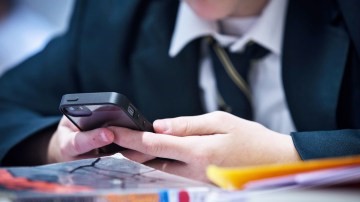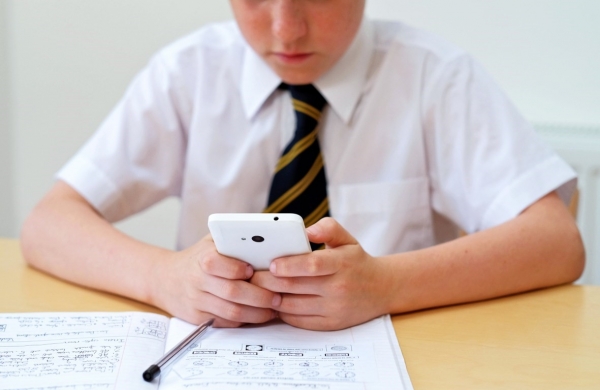
Emma Yeomans, Ali Mitib, Monday February 19 2024, 11.00pm GMT, The Times
Phone bans can reset relationships with clingy parents and help children who are hooked on their devices, but schools can only do so much, say headteachers who have pioneered strict rules.
After new guidance for schools on restricting pupils’ access to their smartphones came into place on Monday, heads have described how teenagers are “addicted” to their phones and parents want “constant” contact with their children.
Gillian Keegan, the education secretary, said the ban would iron out “inconsistencies” in how schools deal with phones.
Speaking to Times Radio, she said: “We have been concerned about increases in bullying amplified by social media. It’s to make it clear and empower heads to say there is no place for phones in the classroom.”
However, the ban has been criticised by teaching unions, who say schools already have robust policies in place, and that the government should focus on tackling harmful websites instead.
Wimbledon High School, in southwest London, was the first school to introduce phone lock boxes, where students must lock away their devices all day.
The idea came after parents said they felt pressured to buy smartphones for pupils starting in year 7. It prompted a school discussion about a “return to bricks” — old-style practical phones — but the school settled instead on buying phone lock boxes.
Ben Turner, the school’s senior deputy headteacher, said it has had “unequivocally positive” feedback and that after initial blips. Year 7 and 8 pupils must lock away their phones at the start of the day and are checked for compliance.
He said: “[After] the pandemic, many [parents] felt the need to be in more constant touch with their children, but resetting this boundary around mobile devices has helped separate the roles that were conflated in lockdown, between parents and school, and has allowed for greater independence and resilience in our young people.”
Pupils have been enthusiastic too, he said: “There are no longer clusters of students trying to sneak a look at their phones at break or lunchtime; clubs and activities are full and the day offers respite from social media and the pressures that can build for our young people.
“It is easy to cast teenagers as cynical of any rule or boundary, but student engagement with this issue has been huge and wholeheartedly supportive.”

Alex Harris, the headteacher at Robin Hood Academy, a primary school in Birmingham which bans the use of mobile phones on-site, called for the government to go further and legislate on ownership of smartphones by children.
He said that he has seen first-hand the increasing reliance of pupils on technology, with one year 10 pupil at a previous school brought to tears after her phone was confiscated for ten minutes.
“Despite the phone being banned at the school, she was on it and the issue was escalated to me. When I asked her for it she refused,” he said. “She was almost physically unable to give the phone to me. She seemed so attached to it that she was almost experiencing withdrawal symptoms from it.”
He likened the use of phones to “other addictive substances like smoking and alcohol”, adding: “It became obvious to us that they were not healthy and we need to legislate against children being able to access them.”
He added that he has not seen any outbursts or problems resulting from the ban.
Last November Harris signed an open letter to Keegan as part of a collective of headteacher and academy trust chief executives expressing concern about the “proliferation of smartphone use among children and adolescents and the negative impact of this upon their mental and physical wellbeing”.
Currently, the vast majority of schools restrict or ban phones. Data from Teacher Tapp, which surveys school staff, found that 76 per cent of primary schools collect phones in at the start of the day and only return them at home time, while 13 per cent ban them from school grounds.
Among secondary schools, 48 per cent allow pupils to carry phones but prohibit their use at all times, while 9 per cent collect and keep devices.
However when asked, “Did a student take out a mobile phone in one of your lessons today without permission?” 20 per cent of teachers said yes, suggesting the issue is not policy but enforcement.
[에듀인사이드=한현석 특파원]


